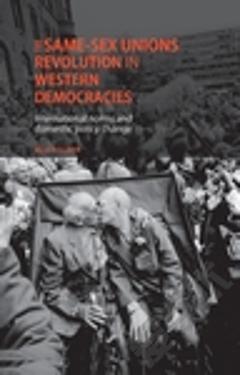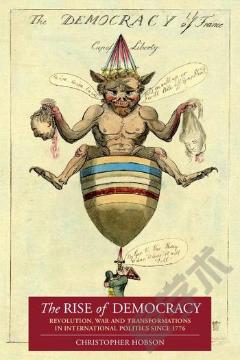The same-sex unions revolution in Western democracies —— International norms and domestic policy change
----- 西方民主国家的同性结合革命:国际规范和国内政策的变化
The implementation of laws recognizing same-sex unions (SSU) by a majority of western democracies over the past two decades represents one of the most stunning cases of convergent policy change in recent times. The Same-sex Unions Revolution argues that this wave of SSU policy adoption that occurred across Western Europe and North America in the 1990s and early 2000s is, to a significant degree, the product of international norm diffusion and learning. The monograph first traces the creation of a norm for relationship recognition by transnational activists and policymakers within Europe, and describes how the dissemination of this norm has catalyzed policy change across western democracies. The second part of the monograph analyzes policy developments in four countries (USA, Canada, Germany, and the Netherlands) to illustrate how and the extent to which the international norm has shaped national SSU policy debates. This comparative analysis reveals that cultureâespecially religious values, international norm legitimacy and national conceptions of human rightsâhas profoundly influenced how countries have received the SSU norm as well as their decisions about whether and what kind of SSU law to adopt (marriage vs. registered partnership vs. unregistered cohabitant).
{{comment.content}}








 京公网安备 11010802027623号
京公网安备 11010802027623号